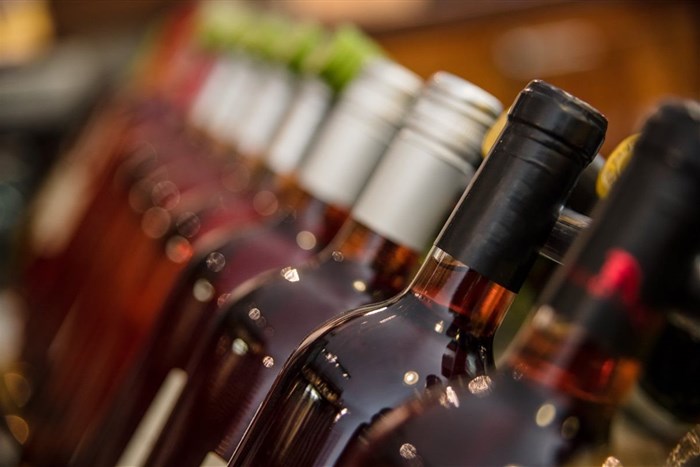
Related
Top stories






More news
















"The Macro-Economic Impact report by FTI Consulting, which measured the wine and brandy industry’s impact on the South African Economy for 2022, reveals compelling insights into the industry's multifaceted role in driving economic vitality and inclusivity."
The FTI study was accompanied by a 2022 study by I and M Futureneer Advisors, measuring the economic contribution of wine tourism.
The wine and brandy industry’s extensive value chain, which is rooted in agriculture, has over the past 365 years, played a significant role in South Africa’s cultural and economic history. Its distinct role within the South African alcohol industry landscape includes an extensive rural footprint, tourism, foreign revenue via exports of wine to more than 120 countries and the associated brand reputation for the country.
"Amid the challenges posed by the global pandemic, wine tourism has proven to be a resilient lifeline for the industry, elevating its economic significance and showcasing its adaptability," says Basson. "The growth from 14.7% in 2019 of total winery turnover attributed to wine tourism to 17.3% in 2022 underscores its pivotal role as a revenue source. In 2022, wine tourism contributed R9.3bn to the South African economy, surpassing pre-Covid-19 levels and significantly outperforming the 2019 contribution of R7.2bn.
"Particularly noteworthy is the profound impact on the industry’s ±400 micro and small wine cellars (of 523 wineries total), with a substantial 36.3% of their total turnover rooted in wine tourism's vibrant experiences. In the face of adversity, these numbers affirm the enduring appeal of South Africa's wineries and the integral role of wine tourism in sustaining the heartbeat of our industry."
In 2022, the South African wine and brandy industry showcased its significant impact on the country's GDP, generating an economy-wide contribution of R56.5bn, constituting 0.9% of the nation's GDP at market prices. This highlights the industry's capacity to stimulate economic activity across various sectors, underscoring its crucial role in adding value and overall economic vitality.
The wine and brandy industry's activities generated a fiscal contribution of R19.26bn economy-wide, also emphasising its role as a substantial source of government revenue, accounting for 1.23% of the nation's total tax revenue in the 2022 financial year.
The report clearly shows evidence that overall growth was constrained due to the negative impact of more than 200 days of alcohol bans during Covid-19, policy uncertainty, the lack of enforcement on illicit alcohol trade, logistical challenges experienced at ports, load shedding and disruptions due to geo-political factors. This has placed significant pressure on the financial position of producers and wineries and has hampered the pace of re-investment for future growth.
The 2022 study introduced the Community Economic Resilience Index (CERI). This was included to underline the industry's commitment to understanding and addressing vulnerability in areas such as the Cape Winelands, emphasising the need for targeted support to ensure future sustainability.
"The Community Economic Resilience Index unveiled within the 2022 study reflects our commitment to navigating challenges with precision and purpose," says Basson. "As we analyse CERI scores, notably within the Cape Winelands, the variations highlight the nuanced economic landscapes within our industry. This calls for a tailored and targeted approach, emphasising the necessity for strategic collaboration with national, regional, and local government initiatives."
Implementing the Agriculture and Agro-Processing Master Plan (AAMP) is also imperative for fostering sustainability within the wine and brandy sector. Urgent attention is required for important issues, including revitalising the Port of Cape Town, enhancing market access through trade beneficiation, establishing policy certainty, and enforcing existing legislation.
The wine and brandy industry has also been a robust driver of employment, creating 270,364 job opportunities across various sectors, skill levels and demographic groups, accounting for 1.8% of national employment. Wine grape cultivation and winemaking activities spanning 89,000 hectares collectively support 85 962 jobs. The industry's commitment to diversity and inclusivity is evident in its role as a significant contributor to positive labour dynamics.
The industry's output-based GDP multiplier of 1.57 surpasses the national average, supporting R1.57m of value added to the national economy for each R1m of sales revenue in the wine industry. The industry’s output-based employment multiplier of 7.51 also surpasses the South African average of 6.58. It indicates that for every R1m of sales revenue in the wine industry, 7.51 formal and informal jobs are supported.
The employment-to-employment multiplier of 3.15 indicates that for every job in the wine industry, an additional 2.15 jobs are supported throughout the rest of the economy, for a total of 3.15 jobs when including the initial job in the wine industry. These figures highlight the industry’s role in providing opportunities within the formal and informal sectors.
"The South African wine and brandy industry is a beacon of economic resilience, contributing significantly to GDP, employment, tourism, and government revenue," says Basson. "As we navigate the challenges and opportunities ahead, strategic collaborations and continued support will ensure this vital sector's sustained growth and vitality.
"South Africa Wine’s newly created strategy underscores key growth drivers, steering us towards a future defined by innovation, sustainability, and market resilience."